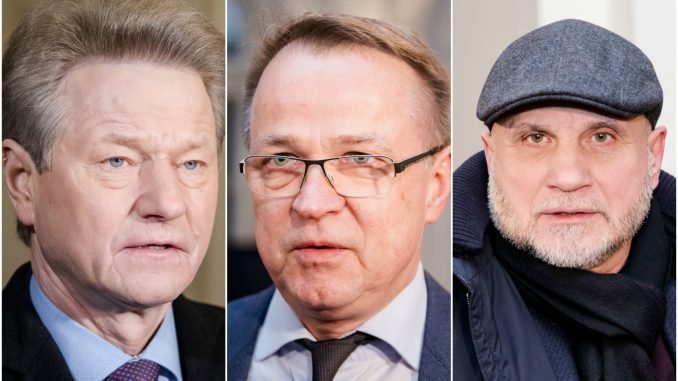
The first hearing in the case was held by judge Virginija Pakalnytė-Tamošiūnaitė last December, with a decision taken in the proceedings to extend the panel to three judges.
Panels often hear cases of public interest, as well as cases of extreme complexity.
During the December hearing, Paksas, Vainauskas and Zabulis denied the charges. The three will testify after witness testimonies. Paksas, Lithuanian MEP and founder of the Order and Justice party, says he is subject to political retribution.
“The essence of the accusations is that the persons agreed to influence public servants for money so that they took relevant decisions. I do not want to jump to conclusions. I think the court will answer all questions as to whether a criminal deed has been committed,” prosecutor Gedgaudas Norkūnas has said.
Prosecutors suspect that Paksas, as then leader of the Order and Justice party, agreed to accept a 15,000-euro bribe from Vainauskas in late August of 2015 and pledged to use his public status, circle of acquaintances and other supposed influence upon state institutions and officials to influence them. The law-enforcement suspect that Paksas was bribed to press construction inspectors to authorize the opening of a new Norfa retail store in Prienai, a town in southern Lithuania. According to the investigation materials, violations established during the construction were later eliminated.
Businessman Zabulis is part of another episode of the investigation. Prosecutors suspect Vainauskas could have exercised his influence to force the Financial Crime Investigation Service (FNTT) to close a probe into large-scale fraud in use of European Union (EU) money by BOD Group, a Lithuanian renewable energy and high-tech company. The allegations were later dropped.

Be the first to comment